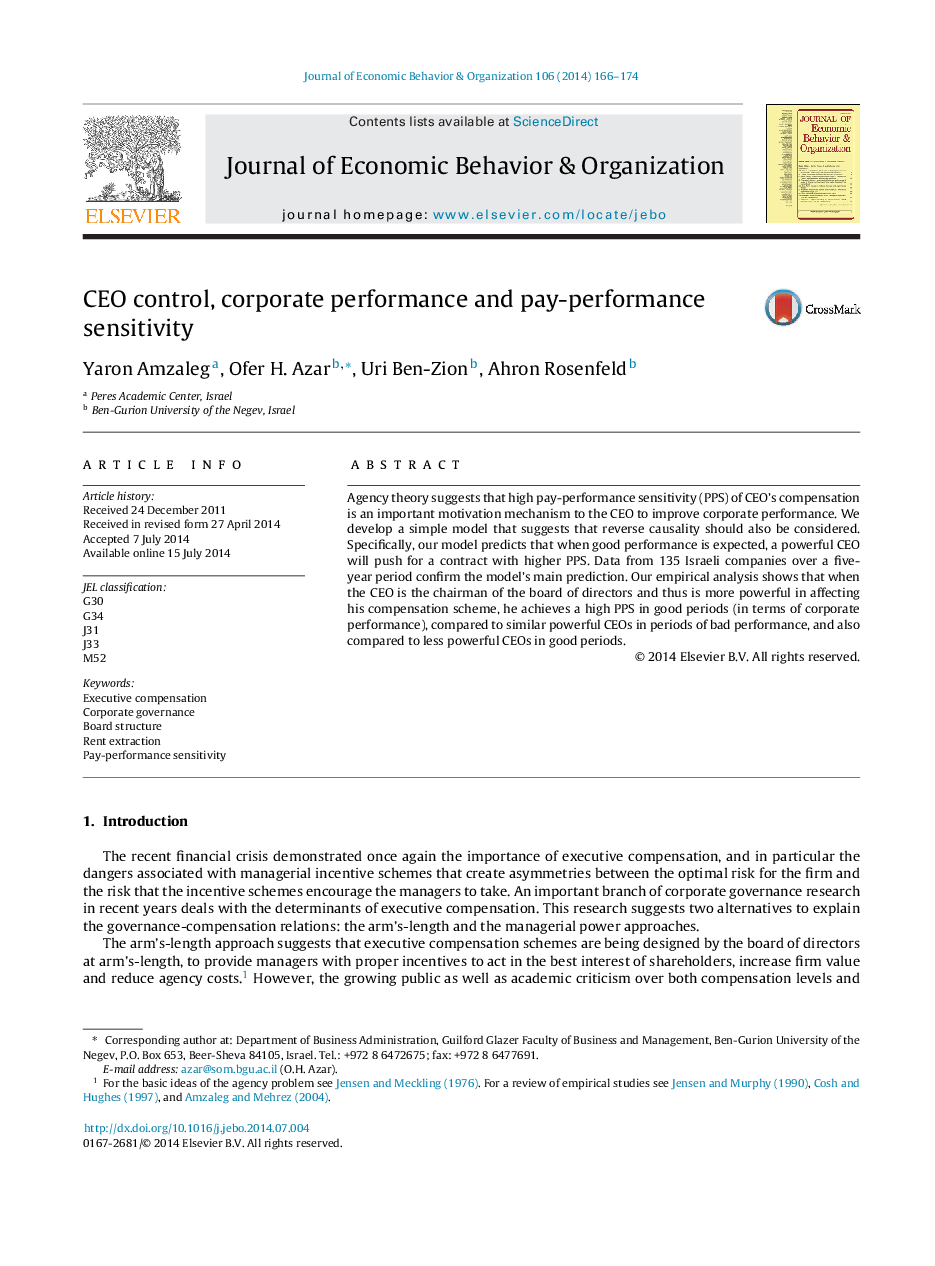| Article ID | Journal | Published Year | Pages | File Type |
|---|---|---|---|---|
| 7243467 | Journal of Economic Behavior & Organization | 2014 | 9 Pages |
Abstract
Agency theory suggests that high pay-performance sensitivity (PPS) of CEO's compensation is an important motivation mechanism to the CEO to improve corporate performance. We develop a simple model that suggests that reverse causality should also be considered. Specifically, our model predicts that when good performance is expected, a powerful CEO will push for a contract with higher PPS. Data from 135 Israeli companies over a five-year period confirm the model's main prediction. Our empirical analysis shows that when the CEO is the chairman of the board of directors and thus is more powerful in affecting his compensation scheme, he achieves a high PPS in good periods (in terms of corporate performance), compared to similar powerful CEOs in periods of bad performance, and also compared to less powerful CEOs in good periods.
Keywords
Related Topics
Social Sciences and Humanities
Economics, Econometrics and Finance
Economics and Econometrics
Authors
Yaron Amzaleg, Ofer H. Azar, Uri Ben-Zion, Ahron Rosenfeld,
